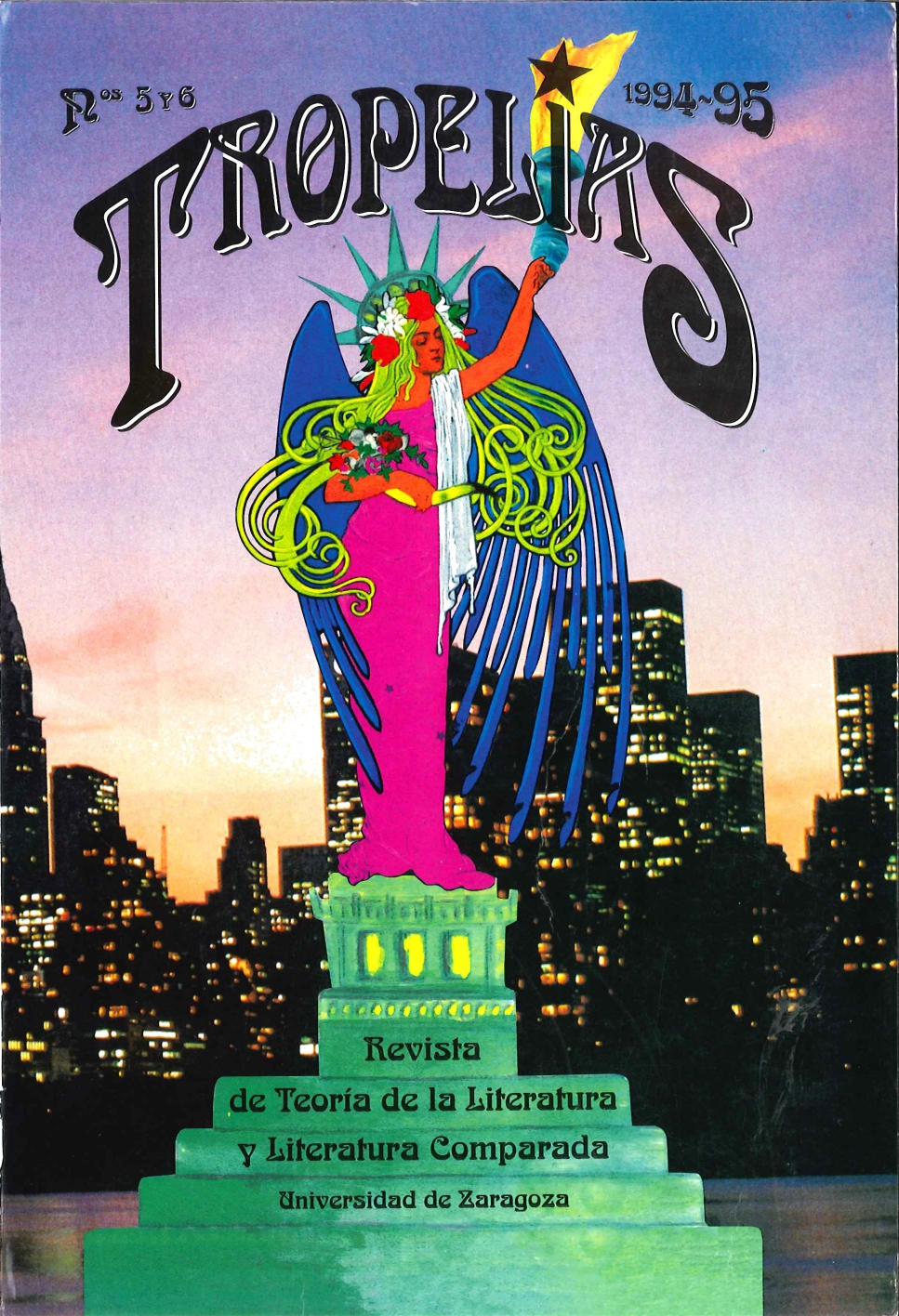The dialogue in lyrical poetry: "Teresa" and "La voz a ti debida"
DOI:
https://doi.org/10.26754/ojs_tropelias/tropelias.19955-65557Keywords:
Miguel de Unamuno, Pedro SalinasAbstract
The present article aims to offer a scientific reflection on the possibilities of realization in lyric discourse of the semiotic pracesses of creation and transformation of meaning sense: expression, signification, communication, interaction, interpretation and transduction. We will use for our analysis poetic works by two especially representative authors: Miguel de Unamuno's Teresa (1924), and Pedro Salinas' La voz a ti debida (1933). From the pragmatics of literary communication's point of view, we intend to establish a set of comparative models (or models of comparison) between both works, in order to account for the di verse analogies present in the processes of lyric enunciation, inherent emission and reception, generated in each of the poems. Finally, we aim towards a model of analysis of Iyric enunciation of general validity, thus applicable to every poem.
Downloads
Downloads
Published
How to Cite
Issue
Section
License
Copyright (c) 2021 Jesús G. Maestro

This work is licensed under a Creative Commons Attribution 4.0 International License.
Los artículos enviados a la revista Tropelías deben ser originales e inéditos, no publicados previamente en cualquier soporte. Únicamente se aceptará material publicado total o parcialmente con anterioridad, o que esté en proceso de evaluación en otra revista, si se hace constar la causa de tal duplicación y se facilita la fuente donde ha aparecido dicho artículo.
Las imágenes que se incluyan en los artículos estarán libres de derechos de reproducción y, en caso contrario, los autores deberán presentar los permisos para su publicación y asumir los pagos derivados de ello.
Los artículos y reseñas publicados en la revista Tropelías pueden ser incluidos en repositorios temáticos o institucionales desde el momento de su publicación, sin modificación alguna e indicando claramente su procedencia.


